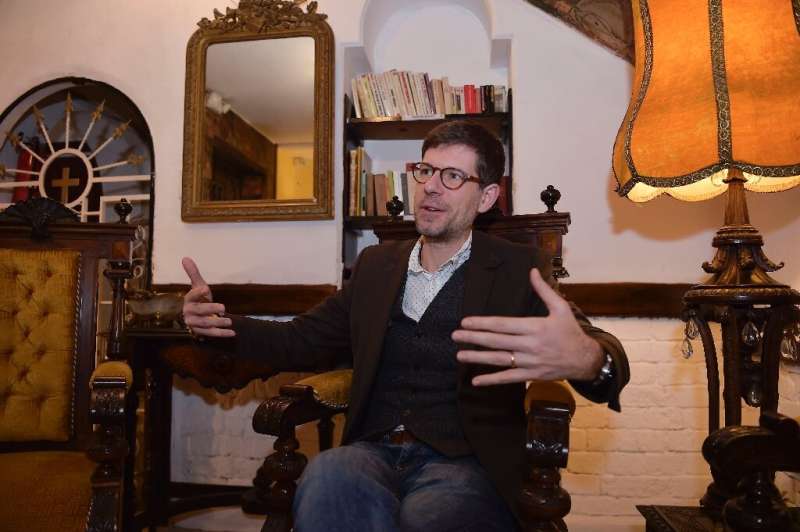Eat like the locals: How scurvy undid last crusader king

He was the last of the crusader kings who was thought to have died of the plague as he made one last—rather roundabout—attempt to recover the Holy Land for the Christianity.
But it now appears that France's King Louis IX—better known as Saint Louis—died because he committed the cardinal error of many a colonial invader: not eating the local food.
An international team of researchers led by a celebrated French forensic pathologist Philippe Charlier, whose Twitter handle translates as Doctor Too Late, now believe he fell prey to scurvy.
Caused by a lack of vitamin C, the painful and potentially fatal disease was the scourge of sailors until the turn of the 19th century.
While the local food in Tunisia where the Eighth Crusade landed in 1270 contained lots of vitamin-C rich salads and citrus fruit, the crusaders' meat-heavy diet and Saint Louis' extreme piety appears to have been his undoing.
"His diet wasn't very balanced," said Charlier, who has also examined the heart of Richard the Lionheart and confirmed that a jawbone held in Moscow belonged to Adolf Hitler.
"He put himself through all manner of penances, and fasting. Nor was the crusade as well prepared as it should have been," he told AFP.
"They did not take water with them or fruit and vegetables."
'Scurvy is certain'
Charlier and his team used carbon 14 dating to authenticate that the jawbone held in a reliquary at Notre-Dame cathedral in Paris belonged to the king, who died five weeks after landing at Carthage.
Examining the bone, he said it was clear that Saint Louis suffered from scurvy, "which attacks the gums and then the bone".
"Saint Louis did not die from plague," as historians had always thought, Charlier added.
"The scurvy is certain, but one cause of death can also hide another," said the paleopathologist.
Chroniclers at the time recounted in gory detail how "Saint Louis lost his teeth, spitting out bits of his gums, which is consistent with what we see on his mandible," the pathologist told AFP.
As much as a sixth of the French army may have perished from disease—including Louis' son John Tristan—as they besieged Tunis in the summer of 1270.
Howling like 'women in labour'
A contemporary accounts by the king's friend Jean de Joinville describe how soldiers howled like "women in labour... as barbers (doctors) had to cut (away) the dead tissue to allow them to chew their meat".
King Louis, however, lived on fish, a more humble food associated with abstinence in the Middle Ages.
The new scientific report in the Journal of Stomatology, Oral and Maxillofacial Surgery said that weakened by the scurvy, Louis could have succumbed to another condition.
"Tradition has conserved a cause of death as plague but this could be related to a bad translation of the ancient word 'pestilence'," it added.
"That he died of the plague is still there in the history books," Charlier said, "and modern science is there to rectify that."
Other accounts maintain that he died of dysentery, and experts are now examining his stomach, which was cut up and boiled in wine and spices to preserve it before being shipped back to Europe.
But the French were not the only ones to suffer during the crusade. De Joinville described both armies were decimated by trench disease, a louse-born illness that also hit soldiers fighting in World War I and II, with the river separating the French and besieged "Saracens filled with corpses".
Saint Louis was an inveterate crusader leading both the Seventh and Eighth Crusades.
The Seventh Crusade, was a disaster, too. After initial success following his landing in Egypt in 1249, it ended with him being captured and ransomed by Cairo's Mamluk rulers.
While Muslims might have a different view, Saint Louis was regarded as a model for medieval Christian rulers.
An ascetic who tended to lepers, fed beggars from his table and washed their feet, he brought to Paris the Crown of Thorns and a fragment of the True Cross on which Christ was said to have been crucified.
De Joinville, who was with him to Tunis, is also the source of the apocryphal story of the good king dispensing justice under an oak tree.
© 2019 AFP




















